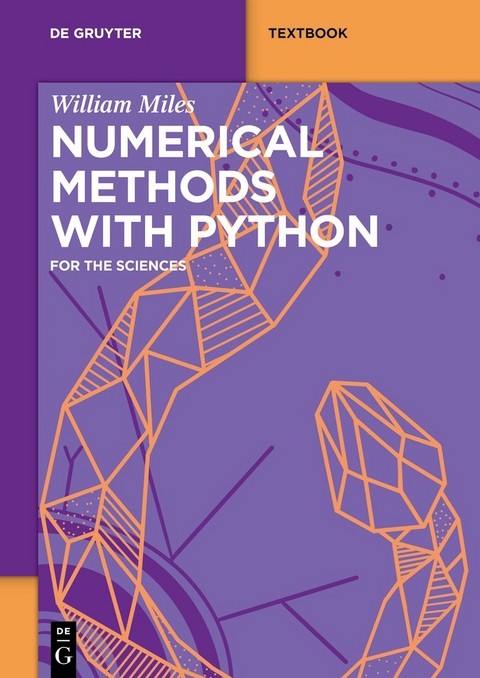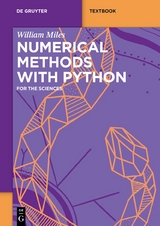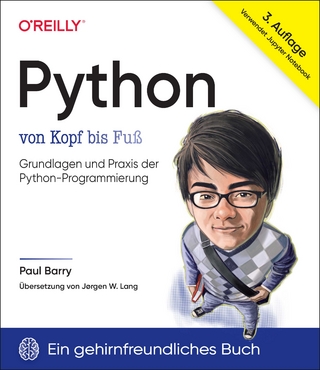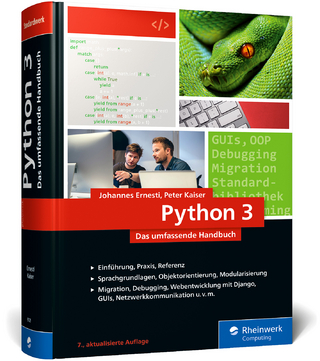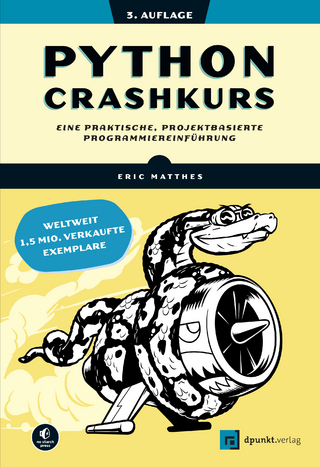Numerical Methods with Python
De Gruyter (Verlag)
978-3-11-077645-4 (ISBN)
The text could be used by students and lecturers for courses in Python, Numerical Methods, or as a first course in Data Science.
Introduces students majoring in the scientific disciplines to programming using Python. Discusses common applications of programming and implementation so that students can see the power and effectiveness of such methods.
Will Miles received his Ph.D. in Mathematical Sciences from Clemson University in 2003. His doctoral thesis focused on mathematical models for multicomponent, viscoelastic fluid flow. His work has appeared in multiple journals, including the Journal of Numerical Analysis published by the Society for Industrial and Applied Mathematics (SIAM). His love for teaching motivated him to seek a position at a smaller, liberal arts institution, and he took a position at Stetson University shortly after earning his degree. He has been at Stetson University since August 2003. The University’s focus on undergraduate teaching and research allowed Dr. Miles to turn his efforts toward guiding such projects and engaging with his students in and out of the classroom. While his training is in fluid dynamics, his work with undergraduates has spanned a wide variety of applied fields. Many projects have involved statistical analysis, but others focused on numerical methods for differential equations, linear and nonlinear programming, Fourier and wavelet analysis, regression and data analysis, and other topics. He has published in refereed journals with undergraduates as authors. One project developed a new ranking system for college football and was published in the Journal of Quantitative Analysis in Sports (co-author Gary Fowks). Another project created and designed a new measure of a golfer’s tendency to improve (or worsen) his play when under pressure (co-author Sammi Smith). This work was accepted to the College Mathematics Journal, a highly competitive journal published by the Mathematical Association of America. Organically, he has developed expertise in the Mathematics of Sports. While at Stetson, Dr. Miles has mentored more research projects than any other math faculty. He has been nominated several times for the university’s highest teaching award, and he has been chosen to serve on grant panel review committees for the National Science Foundation. With two other authors (Dr. L. Coulter and Dr. T. Vogel), he has also published a Python lab manual for the first semester of Calculus. He considers himself a man of faith with a great love for his wife and daughter, and he truly cares for his students.
| Erscheinungsdatum | 22.02.2023 |
|---|---|
| Reihe/Serie | De Gruyter Textbook |
| Zusatzinfo | 50 col. ill. |
| Verlagsort | Berlin/Boston |
| Sprache | englisch |
| Maße | 170 x 240 mm |
| Gewicht | 552 g |
| Einbandart | kartoniert |
| Themenwelt | Informatik ► Programmiersprachen / -werkzeuge ► Python |
| Informatik ► Theorie / Studium ► Theoretische Informatik | |
| Mathematik / Informatik ► Mathematik | |
| Schlagworte | Computer Programmierung • computer programming • Functional mathematics • linear systems. • mathematische Funktionen • Pyhton • Python • Python, Computer Programming, functional mathematics, regression analysis, linear systems. • Regression Analysis • Regressionsanalyse • Rückschritt |
| ISBN-10 | 3-11-077645-6 / 3110776456 |
| ISBN-13 | 978-3-11-077645-4 / 9783110776454 |
| Zustand | Neuware |
| Informationen gemäß Produktsicherheitsverordnung (GPSR) | |
| Haben Sie eine Frage zum Produkt? |
aus dem Bereich
